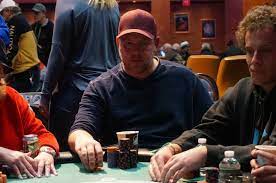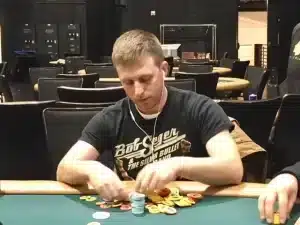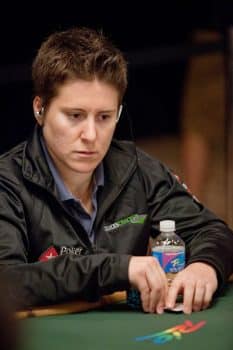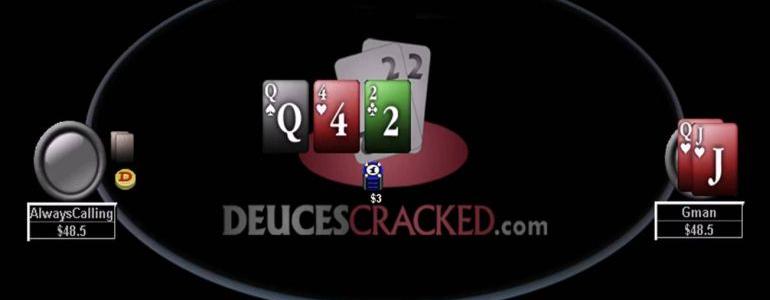
The World's #1 Poker Training Videos Website - Since 2007
Join 140,000+ Members Today and Access 1500+ <u>Videos for FREE </u>and Take Your Poker Game to The Next level.
Featured DeucesCracked Coaches 2024!
60+ Top Online Poker Pros - here to help you to become a winning player!

"One of the absolute top poker pros of all time with over $12m+ poker winnings! A winner of total 3 WSOP bracelets. Poker Tournament specialist who shares all her insights. "
Vanessa “fslexcduck” Selbst
Executive Producer

"Ariel Schneller, also known as “Vick is God” and “DaEvils” on PokerStars and FullTilt is one of the world’s best high-stakes NL cash game players. $1m+ winnings online. One of the true poker legends. "
Ariel ”Foxwoodsfiend” Schneller
Executive Producer

"One of the top winning poker players with over $3m+ poker winnings. Wellknown highstakes poker player on FullTilt. One of the main players in the TV-show ”2Months2Million”. "
Jay ”Pr1nnyraid” Rosenkrantz
Executive Producer & Founder

"One of the most recognizable names in high-stakes online poker. At the height of online poker popularity in America, he was one of the most outspoken high stakes players. More than $5m+ poker winnings. "
Dani “Ansky” Stern
Executive Producer

"Vitch has become one of the most dominant forces within the Mixed Games variations of poker. Vitch has 2 WSOP Bracelets, and 36 results via the WSOP, with his one lone non-WSOP score being a win in a $10K 8-Game tournament. "
Chris “DeathDonkey” Vitch
Executive Producer & Founder

"Is an online poker pro, and probably most famously known as a cast member of the 2009 poker reality show “2M2MM”. Emil is also one of the top high-stakes poker players in both cash games and tournaments. Heads-up- & MTT specialist. "
Emil “WhiteLime” Patel
Executive Producer

"Specializes in Stud, Stud Hi/Low, Razz, Omaha Hi/Low and mental game coaching with hundreds of videos. Developed a specific program for Holdem players to become successful in limit mix games and has taught some of todays top poker players. "
Joe Tall
Executive Producer & Founder

"One of our top pros with broad experience with all sorts of poker. Playing PLO from 1/2 to 10/20+ as well as Triple Draw or mixed games. Some of his popular series are MadPotters, Triple the Gold, Ringmaster, and LARP. Highly appreciated coach."
Dan “DJ Sensei” Morris
Executive Producer
Welcome to DeucesCracked.com
JOIN TODAY #1 POKER TRAINING WEBSITE SINCE 2007, WITH OVER 1500+ POKER TRAINING VIDEOS & 140,000+ MEMBERS!
DeucesCracked´s over 1500+ poker training videos is accessible on multiple devices including iOS devices, Android devices, MACs, PCs, streaming media boxes such as Roku, Apple TV, Chromecast, and Nexus Player.
Best Online Poker Sites 2024
Our Poker Coaches has jointly listed their favourite poker sites based on product, competition, bonuses and much more. Sign-up with one of the online poker sites and get access to our members only tournaments and competitions!
$400 Welcome Bonus!
888 Poker is one of the world’s most acclaimed poker sites. Most users prefer the site for its concrete software, fast response and uniquely lucrative promotions. The platform is also a sister site to the online poker giant 888.com, which has deservedly earned a stellar reputation in the world of gambling. 888 Poker was launched in 2002 and was known as Pacific Poker for a number of years.
100% Up to $1,000!
BetOnline is known as one of the oldest online betting brands, being one of the top choices for online sports bettors. BetOnline was launched in 1998 and have ever since been a very popular choice as a betting site. Although online sports betting have been their main product since the beginning the brand launched their poker product in 2010 with the ambition to be the number one choice for US Poker Players.


Learn from the top poker pros today!
DeucesCracked-coaches & community has helped poker players since 2007
We help beginning players start winning, intermediate players become advanced, and advanced players become unstoppable. We have both tournament and cash game videos. We focus on online games, but these skills work at live tables too.
Elevate Your Poker Game with Proven Strategies at DeucesCracked.com
In the world of poker, knowledge is power. Whether you’re a seasoned player looking to refine your skills or a newcomer eager to learn the ropes, a reliable source of poker training is invaluable. That’s where our website comes into play, offering a comprehensive platform for poker enthusiasts and casino aficionados alike. We provide top-tier poker training videos from renowned professionals and guide you to the best online casinos and sportsbooks, catering to players in the US, Canada, and around the world. In this article, we’ll explore the wealth of resources available on our platform and how it can elevate your poker game and enhance your online gambling experience.
Poker Training Videos from Top Pros
Our website is your gateway to a treasure trove of poker knowledge. We understand that becoming a successful poker player requires more than just luck. It demands strategy, skill, and a deep understanding of the game. That’s why we’ve assembled an impressive collection of poker training videos, hosted by some of the most accomplished professionals in the poker world. These videos cover a wide range of topics, from fundamental concepts for beginners to advanced strategies for seasoned players. Whether you want to grasp the basics of Texas Hold’em, delve into the intricacies of Omaha, or explore the art of bluffing and reading opponents, our poker training videos have you covered. Some of the key features of our poker training videos include:
Exclusive Insights: Learn directly from top pros who have made their mark in the high-stakes poker world. Get an insider’s perspective on the strategies that have propelled them to success.
Variety of Games: Our videos cover popular poker variants like Texas Hold’em, Omaha, Seven Card Stud, and more. No matter your preferred game, you’ll find valuable insights.
Bankroll Management: Discover how to manage your poker bankroll wisely, ensuring that you’re in it for the long haul and minimize the risk of going bust.
Tournament Tactics: Gain an edge in poker tournaments with tips on navigating the different stages of play, adjusting your strategy, and making the right moves at critical moments.
Live Play and Online Play: Whether you prefer live casino poker or online poker, our training videos offer guidance and strategies for both environments.
By immersing yourself in these videos, you’ll acquire the knowledge and skills needed to improve your poker game, make better decisions at the table, and boost your chances of success in both casual games and competitive tournaments.
Unearthing the Best Online Casinos and Sportsbooks
In addition to our poker training resources, we pride ourselves on being your go-to guide for discovering the best online casinos and sportsbooks, no matter where you’re located. We’ve handpicked a selection of reputable platforms to cater to players in the United States, Canada, and the rest of the world.
For US Players:
If you’re a poker enthusiast or an online casino gamer in the United States, our website provides information on the best US online casinos catering to US players. We consider factors such as licensing, game variety, bonuses, and security to ensure that you have a safe and enjoyable experience. The online casinos we recommend for US players are known for their commitment to fair play and prompt payouts.
For Canadian Players:
For our Canadian users, we’ve curated a list of Canadian online casinos and sportsbooks Canada that offer a tailored gaming experience. You’ll find platforms that accept Canadian dollars, provide French and English language support, and offer a range of payment options, including Interac and InstaDebit to give you the best experience for online gambling Canada today. These Canadian-friendly options are a great choice for poker enthusiasts and casino gamers betting online Canada north of the border.
For International Players:
If you reside outside of the US and Canada, our website also has your needs covered. We have reviewed and recommended a selection of best online casinos and sportsbooks that cater to an international audience. These platforms offer a diverse array of games, multiple currency options, and comprehensive sports betting opportunities.
Key Factors in Our Recommendations:
Licensing and Regulation: We only recommend platforms with reputable licenses and strict regulatory oversight to ensure fairness and security.
Game Selection: We assess the variety and quality of games, including poker, slots, table games, and sports betting options.
Bonuses and Promotions: We explore the bonuses and promotions available, ensuring that they provide genuine value to players.
Security and Fair Play: We prioritize platforms that utilize advanced security measures and certified random number generators to protect players and ensure fair outcomes.
Payment Methods: We consider the availability of convenient and secure payment options for deposits and withdrawals.
Customer Support: Reliable customer support is essential, so we assess the responsiveness and professionalism of support teams.
Our website is your one-stop destination for enhancing your poker skills through top-tier training videos and discovering the best online casinos and sportsbooks tailored to your location. Whether you’re a poker novice or a seasoned player, our platform equips you with the knowledge and resources needed to thrive in the exciting world of online gambling. So, don’t wait – explore our poker training videos and discover the perfect online casinos and sportsbooks to elevate your gaming experience today.










